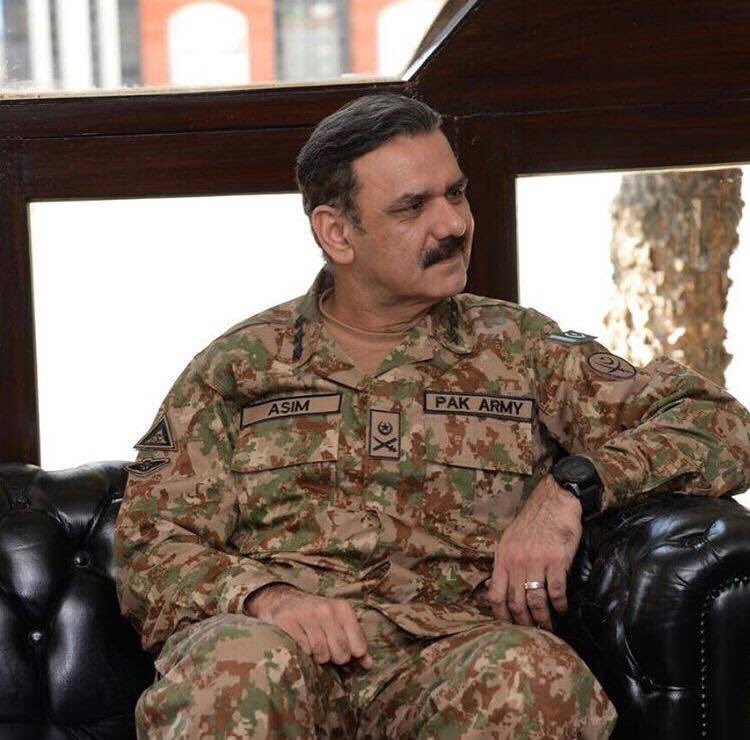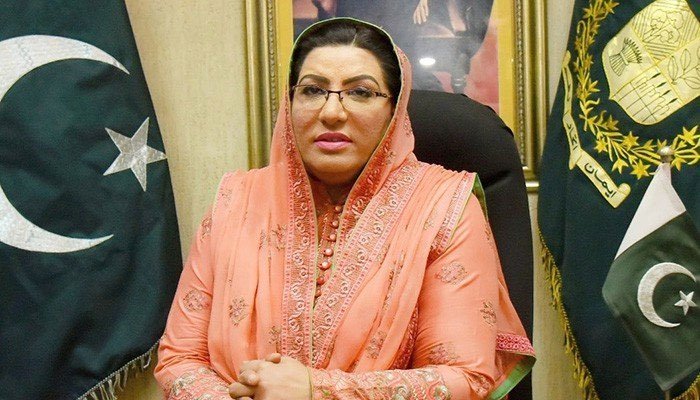While the grim reaper’s ‘COVID-19 whetted’ scythe continues to relentlessly cut swathes through humans all over the world, some of those who were lucky enough to escape its wrath have instead, unfortunately fallen victim to what’s generally referred as “collateral damage.” Given US President Donald Trump’s mercurial disposition, his decision to jettison some important officials who were spearheading the war against COVID-19 comes as no surprise. But for a status quo-ist like Prime Minister Imran Khan to reshuffle his Ministry of Information and Broadcasting (MoIB) is not only a bolt from the blue but equally intriguing, because there appears to be much more to this move than what meets the eye!
The Federal Information Minister, Dr Firdous Ashiq Awan’s performance may have been lacklustre, but to put the blame for this on her leadership skills or competence would be incorrect. The fact of the matter is that by its domineering overreach, Inter Services Public Relations (ISPR), which is the media wing of Pakistan Army, has virtually rendered Pakistan’s Ministry of Information and Broadcasting defunct. Just one example is enough to prove this assertion. On any national decision, whether it be the declaration of war or commencement of a joint army-air force anti-terrorist operation, the prerogative to decide upon and announce the same is invariably that of the government. But this is not always so in Pakistan. Readers would recall that commencement of ‘Operation Zarb-e-Azb’ (which Pakistan Army terms as the biggest anti-terror operation in the world), was announced by ISPR and not the MoIB.
Since this operation became the cynosure of international focus, Rawalpindi realised its humongous faux pas and, on its directions, MoIB went into a frenzy to control the damage already done and it hurriedly issued the statement that “Assuring his fullest support, the Prime Minister said that entire nation is standing behind its armed forces in this war.” But rather than clear the air, both its text and timing of this statement clearly reflects subservience of the legislature to the army. Perhaps that’s why Rana Banerji, a reputed analyst and Distinguished Fellow at Institute of Peace and Conflict Studies, has so confidently opined that “Zarb-e-Azb’ was the Pakistan Army’s unilateral decision. The civilian government was left with no choice but to fall in line.”
However, the contentious issue isn’t Dr Firdous Ashiq Awan’s removal or her replacement by Senator Shibli Faraz. It’s retired Lt Gen Asim Saleem Bajwa’s nomination as the Special Advisor to Prime Minister (SAPM) for Information and Broadcasting that’s raising eyebrows since its quite apparent that this decision has been influenced by considerations that transcend media related issues. Bajwa has been a former Director General (DG) of ISPR and his experience will certainly give MoIB a more nuanced approach that harmonizes perfectly with the anti-India focus of ISPR. There are no doubts that by talking more about Indo-Pak politics and internal affairs of India rather than matters military, the ISPR had starting to make a laughing stock of itself and that’s why Rawalpindi needs someone like former DG-ISPR Lt Gen Bajwa who can convert MoIB into an effective anti-India propaganda machine!

Secondly, seeing the way Pakistan Army Chief Gen Qamar Javed Bajwa is repeatedly reminding the nation of how the army is rendering yeoman service in the COVID-19 pandemic and the ISPR’s overdrive on this issue indicates that the army chief isn’t quite happy with MoIB’s army-projection blitz. Perhaps that’s why he’s got his namesake to rejig this department and make it more attuned and dancing to the army’s tune. Lt Gen Asim Bajwa is certainly an excellent choice due to his proven track record of having extricated the Pakistan Army from several extremely embarrassing situations – the most impressive being the ISI-orchestrated abduction and killing of Syed Saleem Shahzad, an investigative journalist and reporter working for the Hong Kong-based Asia Times Online as well as Adnkronos International, an Italian news agency, in May 2011.
By the time Lt Gen Bajwa took over as DG-ISPR, a year since Shahzad’s abduction and murder had elapsed but the army and ISI were still facing the heat due to ISPR’s shoddy handling of this case. In the first place, ISPR failed to advise ISI against issuing any statement denying its role in the murder of Shahzad. Spy agencies generally don’t get directly involved in the business of issuing statements or rebuttals but in this case, the ISI made the colossal mistake of doing so, and rather than dispelling suspicions regarding its involvement, this denial only ended up raising more doubts about the ISI’s involvement.
Even the then US Chairman of the Joint Chiefs of Staff, Admiral Mike Mullen went on record to say that Shahzad’s murder “was sanctioned by the government (of Pakistan).” To add to Pakistan Army’s woes, just two and a half months before Lt Gen Bajwa became DG-ISPR, Paris-based Reporters sans Frontiers (RSF) or Reporters Without Borders, published a scathing report titled ‘Intelligence agency choking under heaps of blame in murder of journalist Saleem Shahzad’, indicting ISI and Pakistan Army. Lt Gen Bajwa deftly handled this crisis and soon Shahzad’s sensational abduction and murder that had enraged RSF, rights groups, civil society, media persons as well as the general public in Pakistan, became a mere input in Pakistan’s burgeoning list of media persons killed by “unknown persons,” and soon forgotten!
But this move has yet another spin-off. Besides commanding the Pakistan Army, Gen Bajwa is also a member of the newly formed National Development Council (NDC) headed by an obedient Prime Minister and so, he has a finger in every pie. But what he lacks is the charisma of his predecessor Gen Raheel Sharif and it’s no secret that it was Lt Gen Bajwa who as DG-ISPR had conceived and executed the unobtrusive but marvellous image projection plan that elevated army chief Gen Raheel Sharif to the status of a demigod. So, even as reorienting the MoIB’s focus on India bashing, in sync with the ISPR, will serve Rawalpindi’s interests of ensuring that there’s no meeting ground for Indo-Pak dialogue, the former DG-ISPR will also be able to use his new position to work towards giving his namesake army chief the image of the modern day Ataturk of Pakistan!
Tailpiece: Whether an army man breathing down the neck of a Prime Minister on media matters will do Islamabad any good can’t be said; but for Rawalpindi, it’s surely a ‘win-win’ situation!

